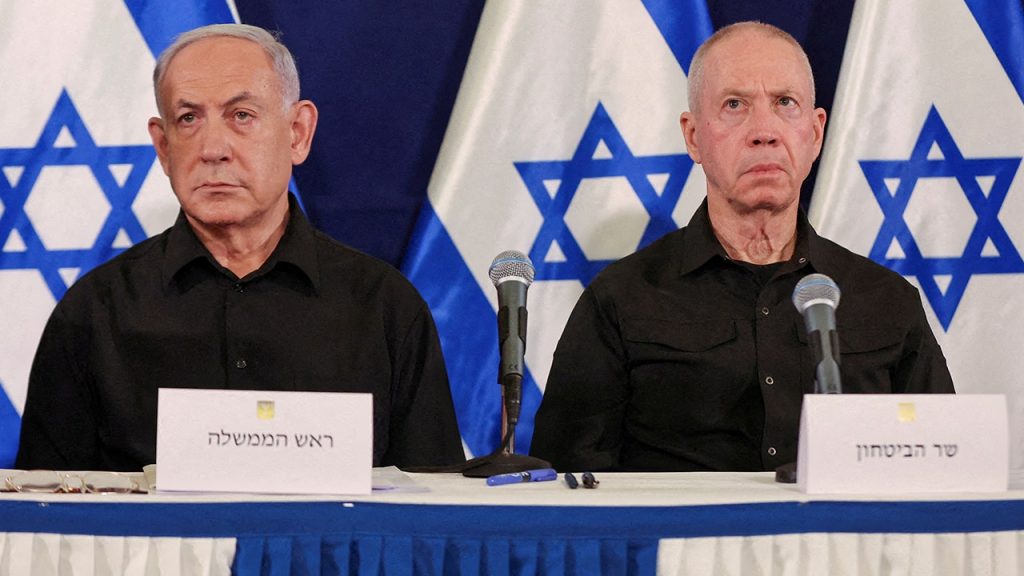Israeli Prime Minister Benjamin Netanyahu recently made the decision to fire his defense minister, Yoav Gallant, due to significant differences in their views on how to proceed in dealing with conflicts in Gaza and Lebanon. Netanyahu cited a lack of trust between the two as a contributing factor to Gallant’s removal. Gallant, in a statement, expressed his dedication to the security of Israel being his life’s mission. The firing comes at a time when Israel is involved in multiple conflicts, including clashes with Hamas in Gaza and Hezbollah in Lebanon, as well as tense exchanges with Iran.
Netanyahu has issued warnings to Iran, stating that Israel may target Tehran’s nuclear program if Iran carries out another attack on Israel. He emphasized the importance of preventing Iran from attaining nuclear weapons, calling it the chief concern and objective for the IDF and security services. Netanyahu’s comments align with the stance of the IDF, which has vowed to enhance its attack capabilities and target list in response to any future attacks by Iran against Israel. The U.S., as Israel’s key ally, has cautioned against targeting Iran’s energy infrastructure, fearing it could escalate into a larger regional conflict. Reports suggest Iran may be waiting until after the U.S. presidential election before taking further action.
Israel has put forth a cease-fire plan for Lebanon that bypasses the United Nations, as U.S. mediators travel to Jerusalem for talks. The ongoing conflicts with Hamas, Hezbollah, and Iran have heightened tensions in the region, prompting Israel to seek diplomatic solutions while maintaining a strong stance in defending its security interests. Netanyahu’s decision to fire Gallant underscores the challenges Israel faces in navigating these complex geopolitical dynamics. The involvement of key players such as Iran, Russia, and the U.S. adds further complexity to the situation, requiring careful strategic planning and coordination.
The firing of Yoav Gallant by Benjamin Netanyahu reflects the Israeli government’s efforts to address internal disagreements and maintain a unified approach in dealing with external threats. The decision also highlights the critical role of leadership in shaping national security policies and responses to regional conflicts. Netanyahu’s determination to prevent Iran from acquiring nuclear weapons underscores the gravity of the security challenges facing Israel and the need for a robust defense strategy. The involvement of the U.S. as a key ally underscores the importance of international partnerships in addressing shared security concerns and promoting stability in the region.
The escalating tensions between Israel and Iran, as well as other regional actors such as Hamas and Hezbollah, underscore the complex and volatile nature of the Middle East. The threat of conflict and the potential for further escalation require careful navigation and strategic decision-making by leaders in the region. Netanyahu’s warnings to Iran and the IDF’s preparedness to respond to potential attacks demonstrate Israel’s commitment to safeguarding its security interests while also seeking diplomatic solutions to avoid broader conflict. The firing of Yoav Gallant and the challenges facing Israel in Gaza, Lebanon, and with Iran highlight the need for a comprehensive and integrated approach to national defense and security policy.













